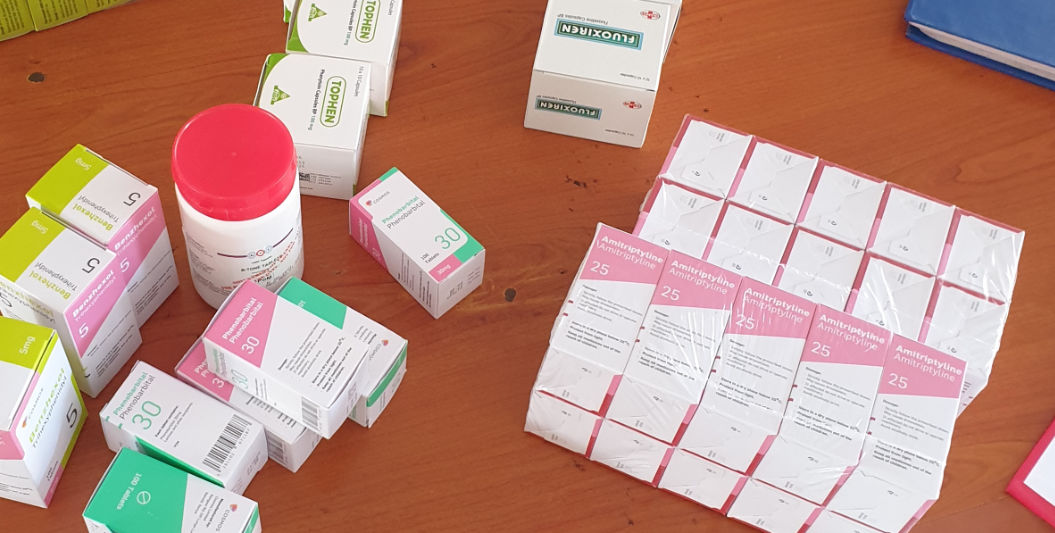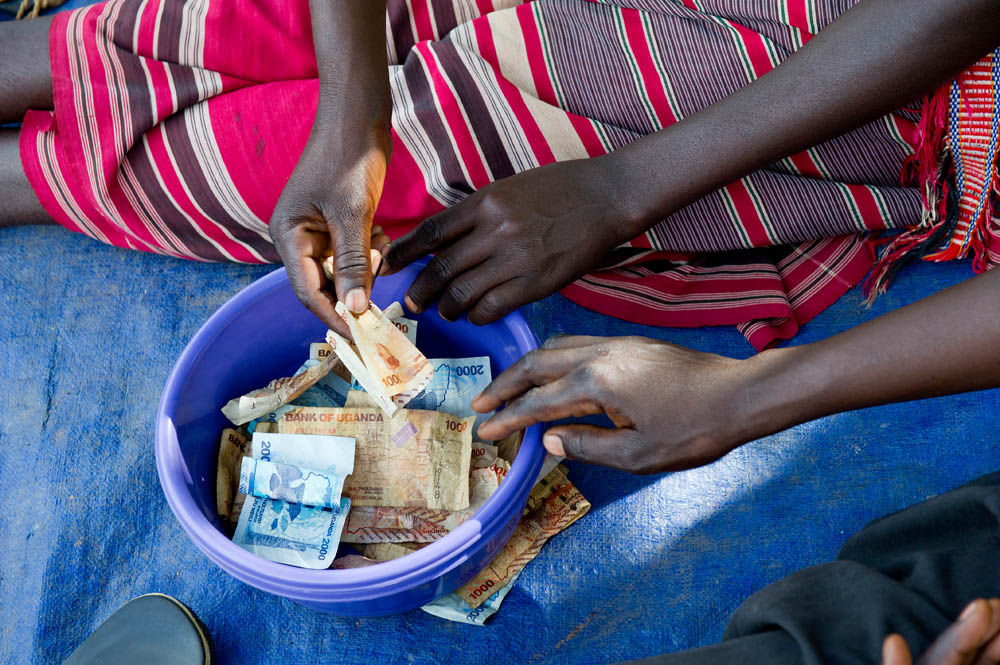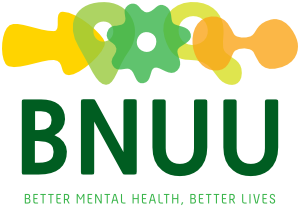
PROGRAMME: Medication / Drug Banks
Location: Agago District, northern Uganda
- Ongoing
Uganda has a “push” system of medication supplies for smaller health centres in rural areas. This means that rather than requesting medication, a standardised kit of essential medicines is sent to such health centres. The net effect of this is that the health centres where BNUU holds its monthly mental health clinics regularly run out of mental health medication, whereas health centres where there is no mental health provision have unused medication that they don’t need. If BNUU is not able to ‘borrow’ medication from other health centres, it finds itself regularly buying medication in order to treat its clients, To counteract this, BNUU builds in a programme of savings for each self-help group, so that they are able to buy medication if there is none available at the mental health clinics. These savings funds are called ‘drug banks’.
In 2021 BNUU raised funds through GlobalGiving for a reserve of mental health medicine for the community ‘drug bank’, as well as seed capital to start self-help groups’ ‘drug bank’ savings schemes. Drug banks are an initiative whereby people with mental illness/epilepsy and their caregivers contribute a fixed amount of money monthly so they are able to buy mental health medicine if they are in short supply in health centres.
As part of this programme, BNUU held meetings with community drug bank management committees to identify mental health medicines that are in short supply, and procured and distributed a total of 370 packs (37,000 pills) of mental health medicine (anti-psychotic and anti-epileptic) to community drug banks in four participating health centres. A total of 540 people benefited from this initiative.
Janet’s story
“I appreciate BNUU for the Drug Bank initiative. Before the initiative, my family member would sometimes come back home without mental health medicine due to drug stock-outs at the health centres. But now I feel extremely motivated to come for medicines on clinic days and my family member does not experience any epileptic attacks.”


